Local and recycled: Enschede Textielstad was founded in 2013 by Annemieke Koster to create responsibly produced fabrics from recycled yarns and local raw materials such as flax, hemp and wool for apparel and interior textiles. To keep the supply chain as short and regional as possible, one of the main focuses of the concept is to develop smart and circular uses of waste streams and local resources – for example, Dutch wool. Its quality is not good enough to make clothes from, and to date there has been no viable business model in sight for this resource – so it has been burned. However, what is not good enough for clothing may be absolutely sufficient for other purposes, so Enschede Textielstad now weaves fabrics from the wool that are ideal for upholstered furniture.
The same applies to linen – there have been no projects with economic viability in the Netherlands to date. To change this, The Linen Project was founded in 2019 as an initiative of Crafts Council Nederland and ArtEZ University of Fine Arts (see feature in also this Sustainable Innovations issue). In 2020, the two projects began a collaboration based on division of labor, with Enschede Textielstad acting as a weaving mill for flax cultivated in the Netherlands.
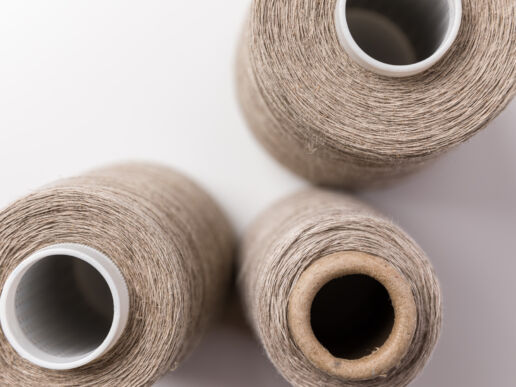
“We are bridging the gap between mass production and laboratory scale testing. We do so with a focus on sustainable, local and social production on the most innovative machine the industry has to offer. With our investment and expertise we help the industry move forward by testing new materials in early stages of development.”
ANNEMIEKE KOSTER, FOUNDER ENSCHEDE TEXTIELSTAD
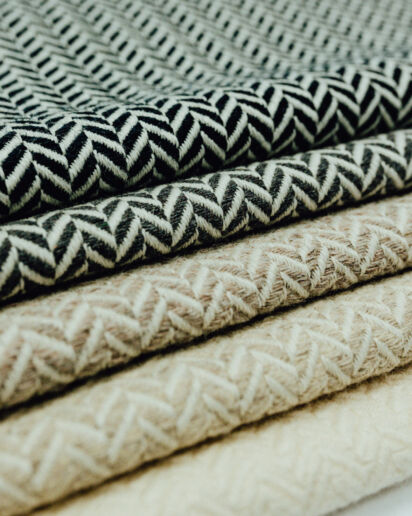
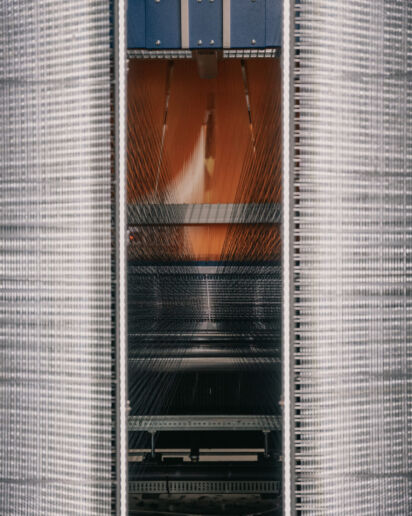
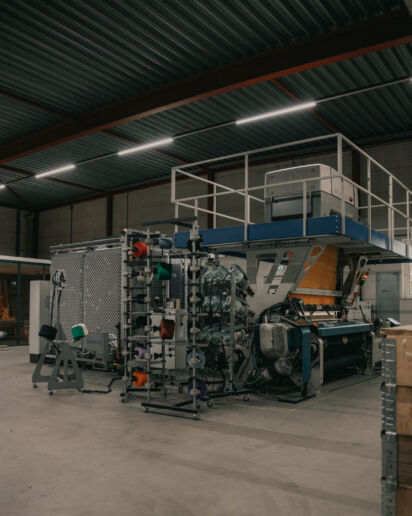
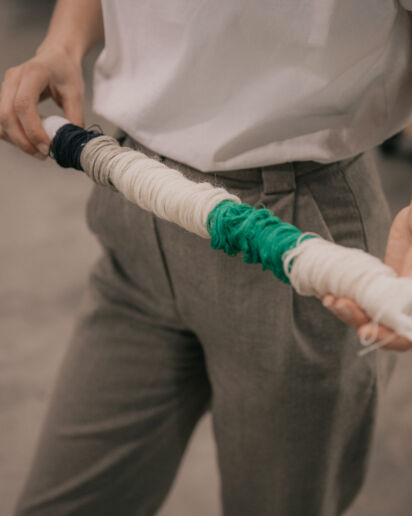
This collaboration is accompanied by a new cooperative business model: instead of simply selling the fabric by the meter to customers, a subscription model was designed for The Linen Project. Customers become part of the supply chain and share responsibility for the process of harvesting, weaving and finishing. The fabrics are then sold as “lots”, with all the imperfections as these are part of the subscription.
———————————————————————–
THIS MIGHT ALSO BE INTERESTING FOR YOU
The Power of Data: Understanding How Data Tackles Challenges in the Textile Industry
31. January 2025
Data might feel intimidating for the fashion and textile industry, but it holds the power to unlock transparency, boost efficiency, and spark innovation...
MUNICH FABRIC START & BLUEZONE – Essence of Innovative Design & Smart Strategies in Challenging Times
24. January 2025
FLORESCENCE describes the phase in which plants reach their full bloom and is used as a general metaphor for the process of blossoming.
Additionals Trends Spring.Summer 26 – Part 8
20. January 2025
Trims and packaging are branding items we shouldn’t take for granted – they are a signature that transforms the ordinary into the unforgettable.




